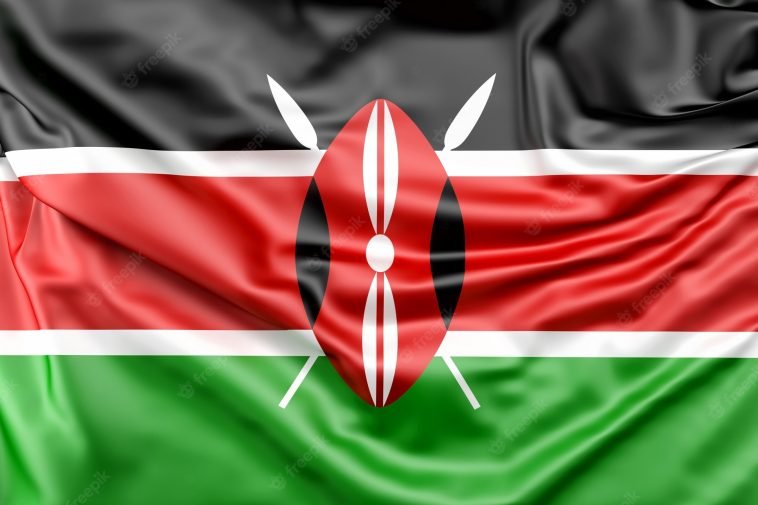Introduction.
The concept of earning from Airbnb without actually owning any property has become incredibly popular, especially in places like Kenya, where tourism and short-term rentals are on the rise.
Setting up an Airbnb business without property ownership might sound unusual, but with the right strategy, it’s very achievable.
If you’re looking to enter the short-term rental market in Kenya without the large investment of buying property, several strategies can help you get started—and some of them can be highly profitable.
Let’s walk through exactly how you can start an Airbnb business in Kenya without owning property, covering key steps, potential hurdles, and ways to maximize your earnings.
How Do I Start an Airbnb Business Without Owning Property In Kenya?
- Rental Arbitrage: Renting, Then Re-Renting on Airbnb
Rental arbitrage is one of the most popular strategies in this setup. The basic concept is to lease a property and then rent it out on Airbnb for a higher price than you’re paying in rent. In Kenya, where rents are often affordable compared to the prices tourists are willing to pay, this can be very lucrative.
- How to Approach Property Owners: Look for landlords open to subletting their property. Be transparent about your intentions and assure them you’ll manage the property responsibly.
- Ideal Locations: Nairobi, Mombasa, and Diani Beach have high tourist traffic, making these areas particularly ideal for Airbnb listings.
- Potential Earnings: A well-placed rental in Nairobi can generate between Ksh 4,000 to 10,000 ($40–100) per night, depending on the property’s location, amenities, and presentation.
- Co-hosting for Other Property Owners
If rental arbitrage isn’t for you, consider co-hosting. Many property owners want to list their properties on Airbnb but don’t have the time or expertise to manage bookings, cleaning, and guest communications. As a co-host, you handle these tasks and earn a percentage of the rental income.
- How Co-Hosting Works: Typically, co-hosts earn between 10%–30% of the revenue. For example, if a property brings in Ksh 60,000 monthly, you could earn between Ksh 6,000 to 18,000 as a co-host.
- Finding Opportunities: You can find co-hosting opportunities on property rental platforms or by networking with local real estate agents who might know property owners looking for help managing short-term rentals.
- Property Management Services
Another path is to offer Airbnb property management services. Similar to co-hosting, but more formalized, this service involves handling all aspects of property rental, from listing optimization and pricing adjustments to cleaning and maintenance.
- Pros of Property Management: You don’t take on the financial risk of leasing properties. Instead, you’re paid a set fee or commission.
- Challenges: Success depends on building trust with property owners and delivering a high level of service. You’ll need a team or reliable contacts for maintenance and cleaning.
- Earnings Potential: Property managers usually earn around 10%–20% of monthly rental income.
- Partnering with Local Guesthouses or Boutique Hotels
Kenya has a wealth of unique guesthouses, boutique hotels, and eco-lodges, many of which would be great on Airbnb. You could negotiate with these establishments to manage their Airbnb listings, increasing their visibility while you earn a cut from every booking.
- Advantages: This option often involves less setup since many guesthouses are already equipped with the necessary amenities for hosting.
- How to Start: Reach out directly to small guesthouses, especially in areas with high tourism, like Malindi or the Masai Mara. Present data on how Airbnb can help increase their occupancy and revenue.
- Offer Specialized Airbnb Experiences
If you’re looking to tap into Airbnb but don’t want to rent a property, consider offering experiences instead. Airbnb Experiences allows hosts to create unique activities for guests, ranging from guided city tours to cooking classes. In Kenya, cultural and nature-based experiences can be very popular.
- Examples of Experiences: Safari walks, cooking classes on traditional Kenyan dishes, coffee-tasting tours, or art workshops with local artisans.
- Earnings Potential: Depending on demand, a well-marketed experience could bring in anywhere from Ksh 2,000 to Ksh 15,000 per session.
Pros and Cons of Starting an Airbnb Business Without Owning Property
Pros
- Lower Financial Risk: Since you’re not buying property, you avoid high initial costs and mortgage payments.
- Flexibility: You can adjust your business based on demand. If one property or area isn’t performing, you can shift focus without the hassle of selling the property.
- Scalability: You can manage multiple properties, experiences, or partnerships simultaneously, maximizing your revenue potential.
Cons
- Dependence on Property Owners: Your business relies on building strong relationships with property owners, which can be challenging.
- Regulatory Risks: In Kenya, regulations on short-term rentals are still evolving. Some landlords or local councils might have restrictions on subletting for short-term rentals.
- Variable Income: Unlike traditional leases, Airbnb income fluctuates, especially in low tourism seasons.
FAQs: Starting an Airbnb Business Without Property in Kenya
Q1. Do I need a license to start an Airbnb business in Kenya?
Yes, depending on the county, you may need a business permit to operate legally. Nairobi, for example, has specific licensing requirements for short-term rentals.
Q2. How do I handle taxes for an Airbnb business?
Airbnb income is taxable in Kenya. Consult a local accountant to ensure compliance with Kenya Revenue Authority (KRA) requirements, including VAT if applicable.
Q3. What’s the average startup cost for rental arbitrage in Kenya?
For rental arbitrage, initial costs typically include the first month’s rent, security deposit, and furnishing the apartment. In Nairobi, expect to invest between Ksh 100,000 to Ksh 300,000, depending on the property and location.
Q4. Can I do rental arbitrage in any area?
It depends on local regulations and the property owner’s willingness to allow subletting. Areas with high tourism, like Kilimani and Westlands in Nairobi, are ideal for Airbnb but may have stricter rental rules.
Q5. What happens if the property doesn’t generate enough bookings?
It’s crucial to have a backup plan and savings buffer. Proper marketing, optimizing your listing, and competitive pricing can help improve your occupancy rate.
Conclusion
The idea of starting an Airbnb business without owning property in Kenya is not only possible but also profitable when done right.
Whether through rental arbitrage, co-hosting, or managing unique experiences, the opportunities are vast.
By leveraging Kenya’s thriving tourism industry, you can create a lucrative business without the hefty financial burden of property ownership.
Are you ready to jump into this dynamic world of Airbnb without owning property? What strategy do you think suits your skills and resources best?





GIPHY App Key not set. Please check settings